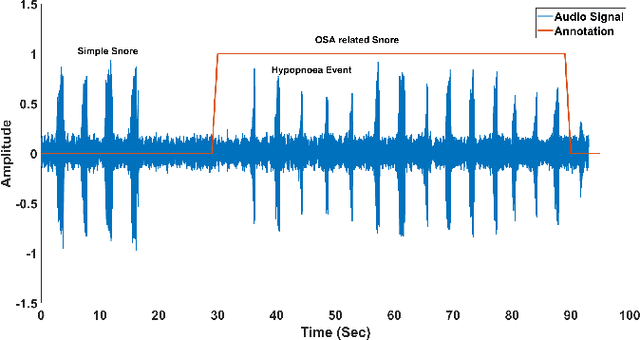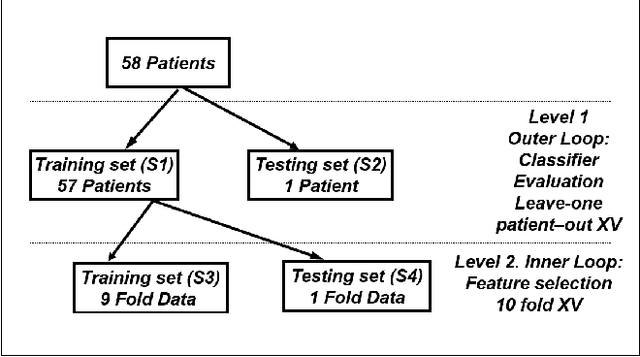Arun Sebastian
Automatic Classification of OSA related Snoring Signals from Nocturnal Audio Recordings
Mar 02, 2021



Abstract:In this study, the development of an automatic algorithm is presented to classify the nocturnal audio recording of an obstructive sleep apnoea (OSA) patient as OSA related snore, simple snore and other sounds. Recent studies has been shown that knowledge regarding the OSA related snore could assist in identifying the site of airway collapse. Audio signal was recorded simultaneously with full-night polysomnography during sleep with a ceiling microphone. Time and frequency features of the nocturnal audio signal were extracted to classify the audio signal into OSA related snore, simple snore and other sounds. Two algorithms were developed to extract OSA related snore using an linear discriminant analysis (LDA) classifier based on the hypothesis that OSA related snoring can assist in identifying the site-of-upper airway collapse. An unbiased nested leave-one patient-out cross-validation process was used to select a high performing feature set from the full set of features. Results indicated that the algorithm achieved an accuracy of 87% for identifying snore events from the audio recordings and an accuracy of 72% for identifying OSA related snore events from the snore events. The direct method to extract OSA-related snore events using a multi-class LDA classifier achieved an accuracy of 64% using the feature selection algorithm. Our results gives a clear indication that OSA-related snore events can be extracted from nocturnal sound recordings, and therefore could potentially be used as a new tool for identifying the site of airway collapse from the nocturnal audio recordings.
 Add to Chrome
Add to Chrome Add to Firefox
Add to Firefox Add to Edge
Add to Edge